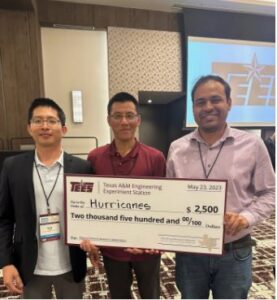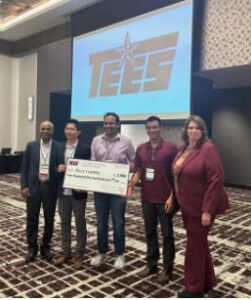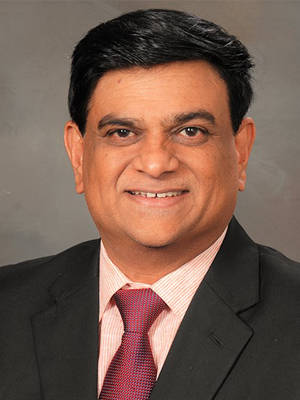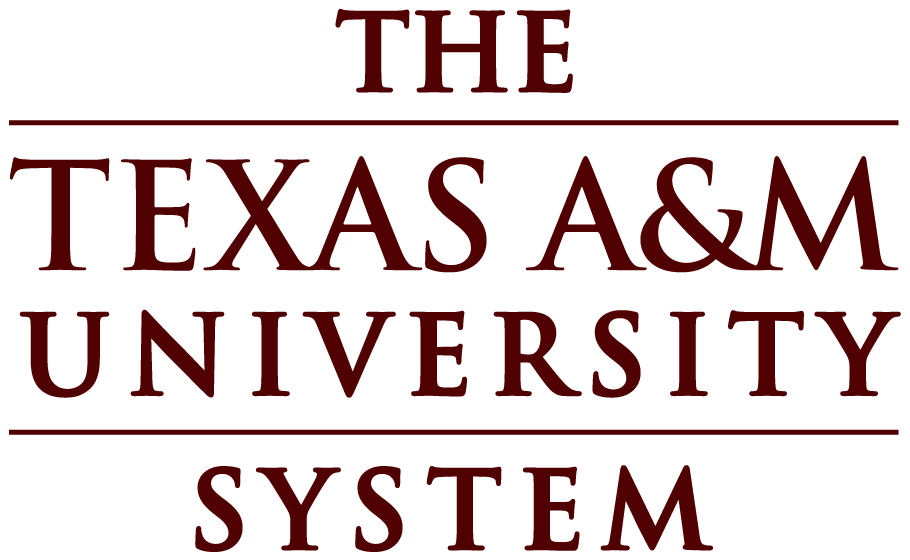
Dr. Nripojyoti Biswas, a Post Doctoral Researcher with TAMU College Station Civil Engineering Department alongside Dr. Ning Luo of TAMU, Corpus Christi, and Dr. Walter Den of TAMU, San Antonio, achieved a remarkable feat by securing a third position for their team “Hurricanes” in the “Elevated 3 Minute Pitch” competition at the recent 2023 TEES Annual Research Conference (TARC). Their groundbreaking proposal, titled “A Data-Driven Approach for Monitoring Coastal Resiliency Against Future Extreme Climatic Events,” has the potential to revolutionize the way we safeguard coastal regions from the adverse impacts of climate change. The “Elevated 3 Minute Pitch” competition at the TEES conference brings together researchers from diverse fields to present their innovative ideas concisely and effectively. Participants are given a mere three minutes to captivate the audience and judges with their groundbreaking concepts.
Coastal areas are particularly vulnerable to the increasing frequency and intensity of extreme climatic events, including hurricanes, storm surges, and rising sea levels. The proposal put forth by Team Hurricanes aims to mitigate these risks by utilizing advanced data-driven techniques and technologies to monitor and enhance coastal resiliency. Their approach combines comprehensive data collection, sophisticated modeling, and real-time monitoring to provide decision-makers and coastal communities with accurate and timely information about their vulnerability to future extreme climatic events. By leveraging state-of-the-art sensors, satellite imagery, and machine learning algorithms, the proposed system will enable authorities to make informed decisions regarding resource allocation, infrastructure development, and emergency preparedness.
Dr. Biswas and his team emphasized the significance of their research in light of the accelerating impacts of climate change. With coastal areas housing a significant proportion of the global population and serving as economic hubs, it is imperative to develop effective strategies that can protect these regions from the potentially devastating consequences of extreme weather events. Their innovative proposal not only focuses on data collection and monitoring but also incorporates community engagement and capacity building. Recognizing the importance of local knowledge and expertise, the team plans to work closely with coastal communities, ensuring that the proposed solutions are tailored to their unique needs and circumstances. By fostering collaboration between academia, policymakers, and community stakeholders, the team expects to create a holistic and sustainable approach to coastal resiliency.
As we confront the increasingly urgent need to adapt to and mitigate the impacts of climate change, Dr. Biswas and his colleagues’ data-driven approach for monitoring coastal resiliency stands at the forefront of innovative solutions. Their success at the TEES conference undoubtedly reaffirms their position as trailblazers in the field, and their proposal has the potential to safeguard vulnerable coastal regions and communities around the globe, ensuring a more resilient future for generations to come.





